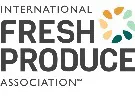The Alliance for Sustainable Packaging for Foods (ASPF) was launched to engage with regulators, governments, researchers, and civil society organizations to ensure that packaging regulations for food achieve environmental sustainability without compromising food safety and product quality and without increasing the carbon footprint of the industry. The ASPF has responded here to the new packaging rules agreed to last month in principle by the EU Member State governments.
The ASPF says the new packaging rules raise serious trade and food safety concerns. They will almost certainly negatively impact global supply chains and food security at a time when more than 37 million Europeans cannot afford a quality meal every second day. Secondary impacts of these new rules will include fewer healthy food choices available to consumers.
The proposed Packaging and Packaging Waste Regulation (PPWR) prohibits even those single-use packaging options that were scientifically designed to maintain quality, safety, and freshness of perishable commodities, as fresh and ready-to-eat foods risk being spoiled, damaged, or contaminated if not packaged appropriately. It would lead to an increase in food waste and, based on studies carried out in other jurisdictions, is likely to result in greater use of more durable types of plastics.
 Dr. Max Teplistki
Dr. Max Teplistki
The current text of the PPWR favors recyclability over composting and, therefore, limits options for fresh food manufacturers. Exemptions to the ban would be left to individual EU Member States, leading to a patchwork of national regulations on food safety and allowable types of packaging for many perishable commodities. Instead of creating harmonized rules, this will undermine the EU Single Market by creating obstacles to trade within, as well as with, the EU.
"The result of the ban on single-use packaging for foods like pre-made fresh salads, pre-cut vegetables, grapes, and berries will be fewer options for consumers. Quality will undoubtedly suffer," says ASPF chair and IFPA chief science officer Dr. Max Teplistki. "These bans will launch a continent-wide gamble with food safety. The fact that each of the 27 EU member states will have to put in place its regulations on food safety and consider whether or not to allow biodegradable packaging undermines a single EU market – as a consequence, consumers in smaller countries will simply not see the same diversity of healthy food options as growers simply cannot design 27 different types of packaging."
As EU regulators finalize these new rules over the coming months, ASPF will continue to urge EU regulators and Member State governments to address these serious food safety and trade concerns. Enormous challenges lie ahead for the fresh food sector. To successfully increase the sustainability of the food supply chain, evidence-based approaches must be adopted that do not compromise food safety, food quality, food availability, and public health.
 For more information:
For more information:
Siobhan May
IFPA
Tel.: +1 (302) 781-5855
SMay@freshproduce.com
www.freshproduce.com
